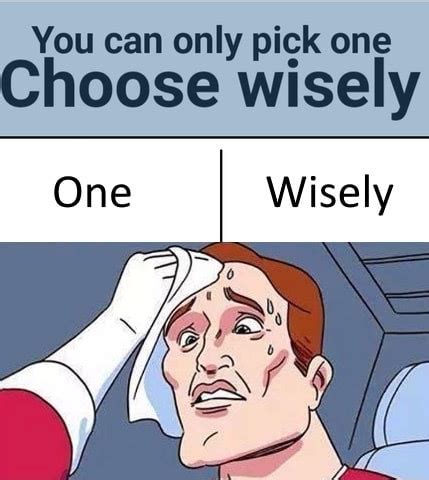When faced with a choice between two or more options, it can be difficult to know which one to choose. We weigh the pros and cons, consider our own needs and desires, and try to make the best decision we can. But what if there was a way to make choosing easier?

There is no one-size-fits-all answer to this question, but there are some general principles that can help you make better choices. Here are a few things to consider:
- What are your goals? What do you want to achieve with this choice? Once you know what you want, you can start to narrow down your options.
- What are the pros and cons of each option? Make a list of the advantages and disadvantages of each option. This will help you see which option is the best fit for your needs.
- What is your gut feeling? Sometimes, our gut feeling can tell us which option is right for us. If you have a strong feeling about one option, it’s worth listening to.
- What do other people think? Talk to friends, family, or colleagues to get their opinions on your options. This can help you see things from a different perspective.
Ultimately, the best way to make a choice is to trust your own judgment. Consider all of the factors involved, and make the decision that you think is best for you.
How to Make Good Choices
Making good choices is a skill that can be learned. Here are a few tips to help you make better choices:
- Be aware of your biases. We all have biases, which can influence our choices. Be aware of your own biases so that you can avoid making decisions based on them.
- Gather information. Before you make a decision, gather as much information as you can about your options. This will help you make an informed decision.
- Consider the long-term consequences of your choice. Don’t just focus on the immediate benefits of a choice. Consider the long-term consequences as well.
- Be willing to change your mind. If you make a decision and later realize that it was not the best choice, don’t be afraid to change your mind. It’s better to make a different choice than to stick with a bad one.
The Consequences of Making Bad Choices
Making bad choices can have serious consequences. Here are a few examples:
- Financial ruin. Making bad financial choices can lead to debt, bankruptcy, and even homelessness.
- Health problems. Making bad health choices can lead to obesity, heart disease, cancer, and other health problems.
- Relationship problems. Making bad relationship choices can lead to divorce, infidelity, and other relationship problems.
- Career problems. Making bad career choices can lead to unemployment, underemployment, and a lack of fulfillment.
Making good choices is essential for a happy and successful life. By following the tips in this article, you can learn how to make better choices and avoid the negative consequences of making bad choices.
4 Useful Tables
| Option 1 | Option 2 | Option 3 |
|---|---|---|
| Pros | Pros | Pros |
| Cons | Cons | Cons |
| Overall | Overall | Overall |
| Feature | Option 1 | Option 2 | Option 3 |
|---|---|---|---|
| Price | $100 | $150 | $200 |
| Features | Basic | Medium | Advanced |
| Warranty | 1 year | 2 years | 3 years |
| Criteria | Option 1 | Option 2 | Option 3 |
|---|---|---|---|
| Price | Low | Medium | High |
| Features | Basic | Medium | Advanced |
| Warranty | 1 year | 2 years | 3 years |
| Option | Pros | Cons |
|---|---|---|
| Option 1 | Low price, basic features, 1 year warranty | |
| Option 2 | Medium price, medium features, 2 year warranty | |
| Option 3 | High price, advanced features, 3 year warranty |
